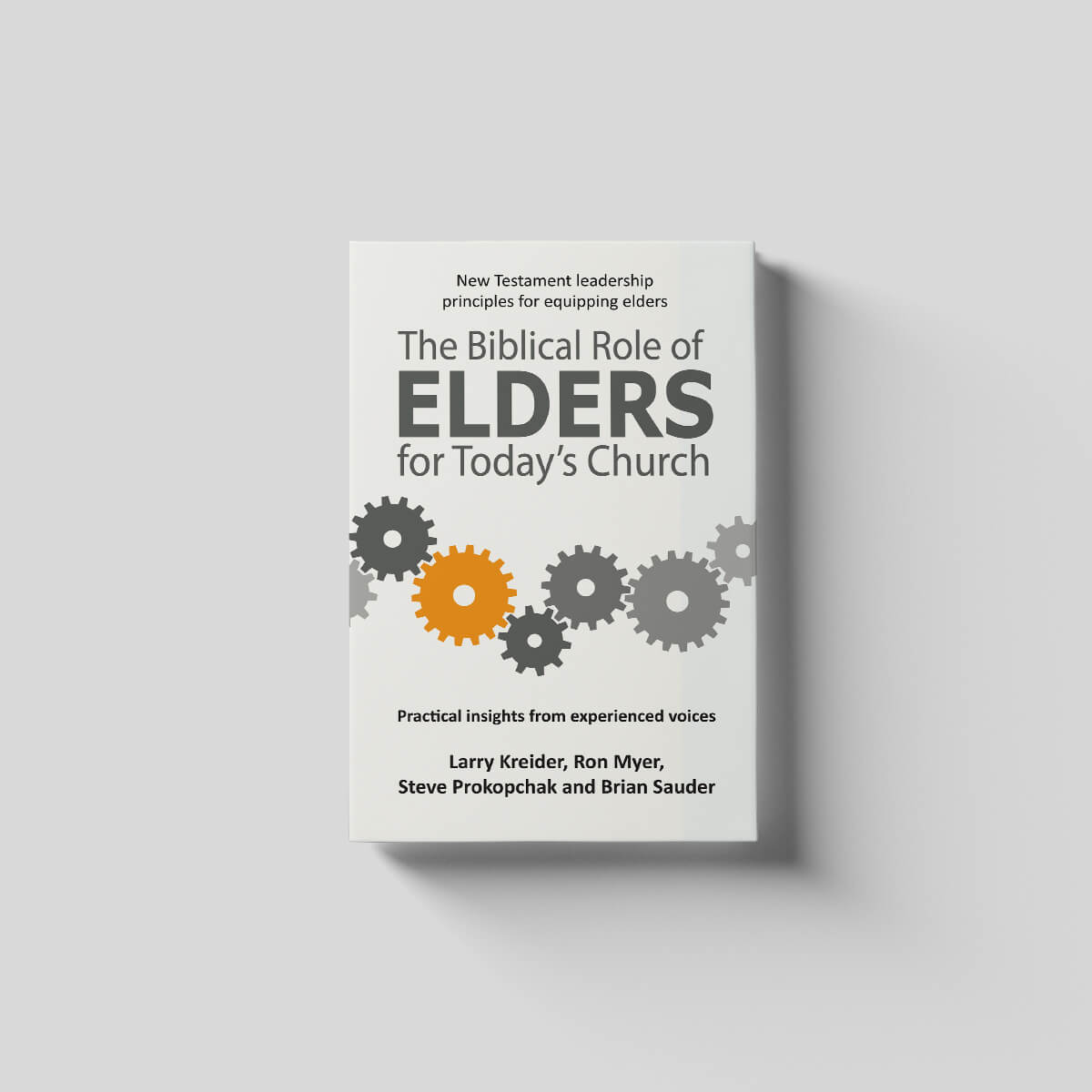Elders are called to give three basic foundational provisions to the life of the church:
- Protection
- Direction
- Correction
Many different aspects come out of protection, direction, and correction, but the three are foundational for the health and growth of the local church.
Give protection
Elders guard the church. Savage wolves will attack. Elders guard and protect the sheep from wolves on the outside and false teaching on the inside. (See Acts 20:29, 1 Peter 5:1-4.) Note that shepherds always carried a horn of oil to put on the wounds of the sheep. (See James 5:14-15.)
Elders are aware of what is being taught outside of their circles. They are abreast with trends in the body of Christ. Elders are responsible for the spiritual diet of the church. Elders guard against excesses and ensure that things are kept in balance.
Elders lay their lives down for the sheep. Their goal is to see the people of the church fulfill their destiny. Elders don’t run from problems, they run to problems to bring solutions and quality of life for the people. This is seen in the leadership of Samuel in 1 Samuel 17:34-35.
Elders provide a spiritual covering for the church. One elder describes spiritual covering as, “To get to the people, you have to go through me.”
Elders are responsible for praying for the believers within their care. This is emphasized by Samuel’s declaration in 1 Samuel 12:23, “As for me, far be it from me that I should sin against the LORD by failing to pray for you.”
Elders feed (Jeremiah 23:4), teach (1 Timothy 3:2), and exhort (Titus 1:5-9, 13) the church.
Elders safeguard the church against false ministries by testing every ministry. They look at the fruit and not just the externals. They are not enamored by charisma but listen for sound doctrine and truth (Titus 1:9). They are not carried about by every wind of doctrine (Ephesians 4:14).
Give direction
Elders are called to set the course for the church. They are responsible for the vision and direction of the church. The lead elder is the primary vision carrier but also carries the vision in his or her heart and a burning desire to see it become a reality.
God is a God of order. He has an order in which things flow properly. Elders are meant to rule. And for there to be godly rule, there must be godly order. For example, Paul established order in the New Testament church in the following instances, along with many others: 1 Corinthians 11:34, 14:40, Colossians 2:5, Titus 1:5.
Elders rule the church. They are responsible to the Lord for the direction of the church (Hebrews 13:7, 17; 1 Thessalonians 5:12-14).
Different types of rule
Auto / cratic dictatorship (King rules)
God runs the universe in an autocratic way. He is a dictator. He is a loving, benevolent dictator.
Demo / cratic (The people rule)
Everyone votes on everything. It is all decided by the majority.
Theo / cratic (God rules)
The sons of God are led by the Spirit of God as God inspires their leadership. Romans 8:14. Theocratic is the biblical model.
Elders govern the church. They direct the affairs of the church as seen in 1 Timothy 5:17 and 3:4-5. They handle the legal responsibilities or work with another team that is accountable to the elder team in those responsibilities.
The elder team is the final authority, with the lead elder being the final authority on the team. Elders must make final decisions regarding the finances of the church.
Give correction
Elders bring correction when necessary. Elders respond as fathers, not grandfathers. They take responsibility, even when problems arise. Proverbs 12:1 exhorts us, “Whoever loves discipline loves knowledge, but whoever hates correction is stupid.”
Giving correction is hard work, but that is part of the responsibility of an elder. Paul mentioned this in 1 Thessalonians 2:9.
Correction must be loving and not lead to humiliation. Paul exhorted Titus to “exhort and rebuke with all authority” (Titus 2:15) and to “rebuke a divisive man” (Titus 3:10).
Working together as a team
Elders should meet often enough to maintain vision, unity, faith momentum, and relationship. They keep the church moving forward.
The first priority of the elders must be prayer, setting vision, and implementing that vision so the church can move ahead.
To facilitate all the above, it is suggested that elders meet at least once a month. Perhaps one meeting a month could be made sacred for only prayer, and the other could be used more for problem-solving and inviting people to meet with the elders.
The lead elder should meet individually with the other elders and spouses every three months.
Biblical theocracy – elders make decisions
The practical outworking of using head and shoulder government for a local church means that the elders make decisions regarding the direction of the church. Another way to describe this is to say that the church has “ruling elders.”
We have found that even the church’s bylaws should reflect this governance. Simply stated, the elders need to be the legal officers of the corporation, and the lead elder should be the chairman or president of the corporation.
For a decision to be made, a two-thirds majority of the elders is recommended, with the lead elder being in the majority group.
This means that the lead elder would not be able to take the church in a different direction than the rest of the elders want it to go, and the elders would not be able to take the church in a different direction than the lead elder wants it to go. It forces them to talk through vision and work together. It also eliminates the possibility of one elder holding up the church from moving forward.
If there is a deadlock of opinions, then the outside court of appeal (the apostolic leadership) is called on to help resolve the dispute.
Elders have the authority to make financial decisions
Finance equals vision and vision equals finance. Therefore, elders must have financial decision-making power. The elders should set the budget for the church, because the budget is determined by the vision. If the elders do not have final decision-making power over the finances of the church, they will not be able to lead the church.
In the New Testament, the elders had financial decision-making powers. We see this in Acts 11. When there was an offering taken for the church in Judea, it was sent to the elders to decide what to do with it.
“During this time some prophets came down from Jerusalem to Antioch. One of them, named Agabus, stood up and through the Spirit predicted that a severe famine would spread over the entire Roman world. (This happened during the reign of Claudius.) The disciples, each according to his ability, decided to provide help for the brothers living in Judea. This they did, sending their gift to the elders by Barnabas and Saul” (Acts 11:27-30).
This does not mean that the elders should write all the checks and read every bank statement. No, the execution of the elders’ budget can be delegated to others in the church who serve in a deacon role and carry out the vision as described.
Elders must not allow the people of God to suffer under the spirit of poverty
Elders must talk unashamedly about tithing, giving, and offerings. The topic should be spoken about several times a year. If elders don’t teach people the biblical truths of financial blessings, the people will not walk in them and the church will suffer financial lack.
The people of God should be given regular opportunities to give offerings in addition to their regular tithes.
Elders do not set their own salary level
Elders who receive a salary from the church should not set their own salary level. A separate group should be selected from mature Christians in the church. This group should consider input from the apostolic oversight of the local church in setting the lead elder’s salary.
The lead elder should be involved in evaluating performance and setting salary for staff members of the church.
The apostolic oversight provides an outside court of appeal should any financial problems or irregularities occur. Each local church should have an annual audit of accounts.
New Testament Leadership Principles for Equipping Elders
- What is an elder?
- What qualifies an elder?
- What is an elder’s responsibility?
- How can a leader and a team work in unity?
- How do you resolve eldership team conflicts?
Find answers for these questions and more! Discover how every member of the Body of Christ is empowered for ministry when elders give healthy oversight to the church. Complete with evaluation questionnaires, sabbatical guidelines, keys to developing a vision statement, and biblical steps to make godly decisions.


